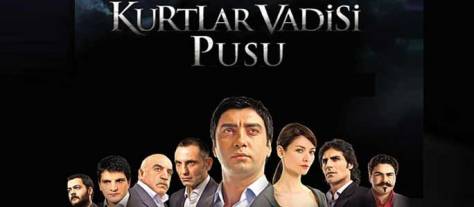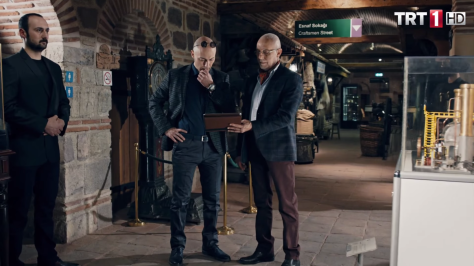1 – Clampdown on expression – Meral Tutcali, a second year university student, has received a suspended sentence for retweeting a satirical article about the governor of the province of Adana from Zaytung, Turkey’s equivalent of the Onion. Both Hürriyet Daily News and Today’s Zaman report that members of the press were prevented from attending a meeting with Turkey’s first lady Emine Erdoğan, apparently at the behest of her security team. Lawyer Umut Kiliç was arrested after a job interview for a judge position on the grounds that he insulted Erdoğan by calling the president a fascist, leading other lawyers to object. The European Parliament criticized Turkey for its crackdown on independent media at a seminar on Wednesday. One of the invitees for this seminar, Zaman newspaper editor Ekrem Dumanli, had to participate via video stream because he is currently under investigation on charges of terrorism. Gültekin Avci, a former prosecutor, is facing a life sentence for retweeting audio that implicates President Erdoğan and his son Bilal in corruption, as reported by Hürriyet Daily News and Today’s Zaman. A number of artists have been sued for releasing a video commemorating the death of teen Berkin Elvan, who was shot by police during the Gezi Park protests and died months later. Today’s Zaman reports on the effects of new “penal courts of peace” that were established by the AK-Party and appear to be used to censor critical media. The same paper reports on the fate of professor Sedat Laçiner, an AK-Party critic who has been asked to stop writing for news site internethaber.com and who was removed from his position as rector of Çanakkale 18 Mart University by President Erdoğan.
2 – Election roundup – President Erdoğan has released a video commemorating the 100th anniversary of the Battle of Gallipoli (referred to as Çanakkale in Turkey), which many are taking as an AK-Party election ad. An ad by the president for such a purpose would be illegal both on the grounds that the president is supposed to be impartial and that use of the flag and religion for political purposes are banned, but there is a clear history of both Erdogan and the AK-Party ignoring both of these grounds (Touched on here and, more recently, here). Both Hürriyet Daily News and Today’s Zaman cover the ad.
Government broadcaster TRT provided 1:20 and 1:17 of coverage for the manifestos of the AK-Party and main opposition CHP, respectively, while giving only 15 minutes to the HDP, a party on the border of passing the 10% threshold to enter parliament. The AK-Party-appointed governor of Erzincan province, Süleyman Kahraman, denied the HDP a permit for an election rally on April 25th, with the excuse that the AKP had the same public square reserved for the 26th. Abit Nasiroğlu, son of a former AK-Party deputy, has been killed in an attack on AK-Party headquarters in Batman by unidentified attackers, while HDP offices in Yalova have also been attacked with gunfire, though nobody was injured.
3 – Turkey, Armenia, and the world – Both President Erdoğan and the Turkish Foreign Ministry have reacted strongly to proclamations from other nations that the massacres and mass deportation of Armenians 100 years ago, which are commemorated on 24 April, constitute a genocide. The withdrawal of Turkish ambassadors from the Vatican and Austria in the wake of genocide claims brings to seven the number of countries from which ambassadors have been removed in recent years. On the local front, a nationalist group left threatening wreaths in front of Armenian newspaper Agos, where journalist Hrant Dink was editor and where he was murdered in 2007. Hürriyet Daily News reports that students marching to commemorate genocide at Istanbul Technical University were attacked by police and that academics from Bilgi University released a statement against that university’s choice to cancel a conference bearing the word “genocide” in its title.
4 – Film festivals – In the wake of Istanbul Film Festival’s pulling of Bakur (North), a documentary about PKK guerrillas from its lineup under pressure from the Ministry of Culture and Tourism (MOCT), the Ankara Film Festival, which also pulled Bakur and a number of other films, has started with a much-reduced lineup of films and competitions. Meanwhile, while the MOCT has yet to comment on charges of censorship, it has opened the 7th iteration of its own Turkish Film Festival in Sarajevo, with a host of nationalist and popular films, as well as Bir Zamanlar Anadolu’da (Once upon a time in Anatolia) by Turkish auteur Nuri Bilgi Ceylan. The IŞÇI (Workers) Film Festival, taking place in Istanbul, Ankara, Diyarbakir, and Izmir starting on 1 May, has released its program for the year.
5 – TV and cinema – Süleyha Kurtuluş, the final manager of Istanbul’s historical Emek Cinema, has for the first time released a statement on the events that led to the cinema’s demolition despite massive protests, saying that, contrary to accusations by Levent Eyüboğlu, a partner in the project that’s been built in Emek’s place, she never asked for that firm’s help or handed over the keys to the building. Serdar Akar’s Kara Kutu (Black Box) series, which was airing on Kanal D, has been cancelled due to poor ratings. It is a Pana Film production and it recently received a 700,000TL fine from RTÜK for “advertising beer” as part of everyday life. FOX has revealed that its 7-years-running series Unutma Beni (Forget Me) will end this year after more than 1,450 episodes.
Follow @mediascrnturkey


